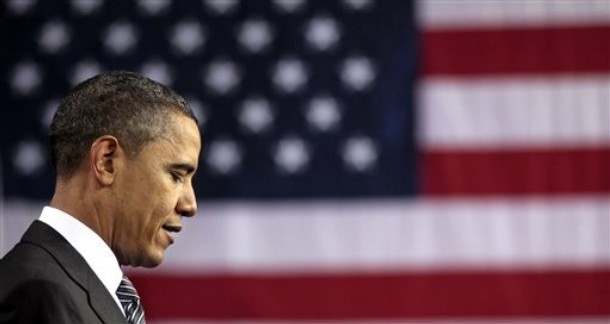
From Scott Wilson, the Washington Post: President Obama is content to let other nations publicly lead the search for solutions to the Libyan conflict, his advisers say , a stance that reflects the more humble tone he has sought to bring to U.S. foreign policy but one that also opens him to criticism that he is a weak leader. …
At a Wednesday meeting of Obama’s senior national security officials, little support emerged for the immediate imposition of a no-fly zone, according to an administration official who spoke on condition of anonymity to describe internal deliberations.
Jamming Libyan government communications and deploying U.S. naval assets to help deliver humanitarian aid were among the most favored near-term options, the official said, adding that "at any time facts on the ground could change, but the intelligence assessment now dispels the idea that a no-fly zone is the key here. …"
Obama’s advisers say his low public profile masks the administration’s active private diplomacy, which has helped produce strong financial sanctions against Gaddafi’s inner circle, and the central U.S. role in military planning underway at NATO, whose defense ministers meet Thursday to consider next steps.
"This is the Obama conception of the U.S. role in the world – to work through multilateral organizations and bilateral relationships to make sure that the steps we are taking are amplified," said Ben Rhodes, the deputy national security adviser for strategic communications. "Maybe this is a different conception of U.S. leadership. But we believe leadership should galvanize an international response, not rely on a unilateral U.S. response. …"
Obama inherited a pair of wars in Muslim countries, and his advisers argue that direct U.S. involvement in a third would do more harm than good to Libya’s popular uprising. …
Senior administration officials say that regardless of whether the U.S. role is characterized as leading or following, it has been part of a swift international response to the Libyan crisis. …
Given the United States’ troubled history with Libya’s erratic leader, a senior administration official said, the White House decided early that "what would be more persuasive to Gaddafi is not just the United States saying something, but having the United States, the European Union, the Arab League, the African Union, the United Nations all saying the same things that essentially left him nowhere to turn for legitimacy or support."
"That’s been done, essentially," the official said, adding, "It’s not as if we’re not on the side of change." (photo: AP)
Image: ap%203%2010%2011%20Barack%20Obama.jpg
